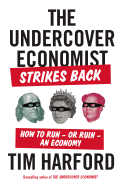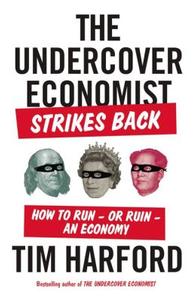

Harford has structured the book as an exchange between the erudite and patient economist of the title and a policy maker to whom he's offering a "user's manual" on "how the economy works, why it misfires and what to do about it." His approach to some of the most heated economic debates, such as how much inflation is good for the economy, is generally evenhanded. It is possible, though, to detect a slight tilt toward Keynesianism, which advocates that governments, in difficult times like the Great Recession that began in 2007, should resist the temptation to turn to austerity and instead pump money into circulation to stimulate demand.
Harford casts a wide net over the standard array of topics--fiscal and monetary policy, unemployment, GDP, growth--that fuel modern economists' most heated debates. Whether he's using the story of a failed babysitting cooperative started by Capitol Hill staffers in the 1970s to illustrate the subject of pricing, or a recession in German prisoner of war camps at the end of World War II to introduce the paradigm of classical economics, he's consistently adept at contriving memorable, if homely, examples to make his points. He exhibits the skill of the best popularizers, introducing a host of frequently abstruse concepts in easy-to-grasp terms, without oversimplifying or condescending to his readers.
"If economic policy was something we understood as well as we understand, say, building a bridge," Harford writes, "there wouldn't be such arguments about it." In this primer, he does an outstanding job explaining why the so-called laws that purportedly govern a complex and ever more interconnected world economy can never be tested in a "robust scientific experiment." It's for that reason, he concludes, economists should be much more open-minded (and certainly more humble) than they are. And it's why we, armed with some of the wisdom gleaned from this book, should greet their categorical pronouncements with a healthy dose of skepticism. --Harvey Freedenberg
Shelf Talker: British financial journalist Tim Harford delivers a lively brief survey of the subject of macroeconomics, making its arcane aspects comprehensible without pretension.

